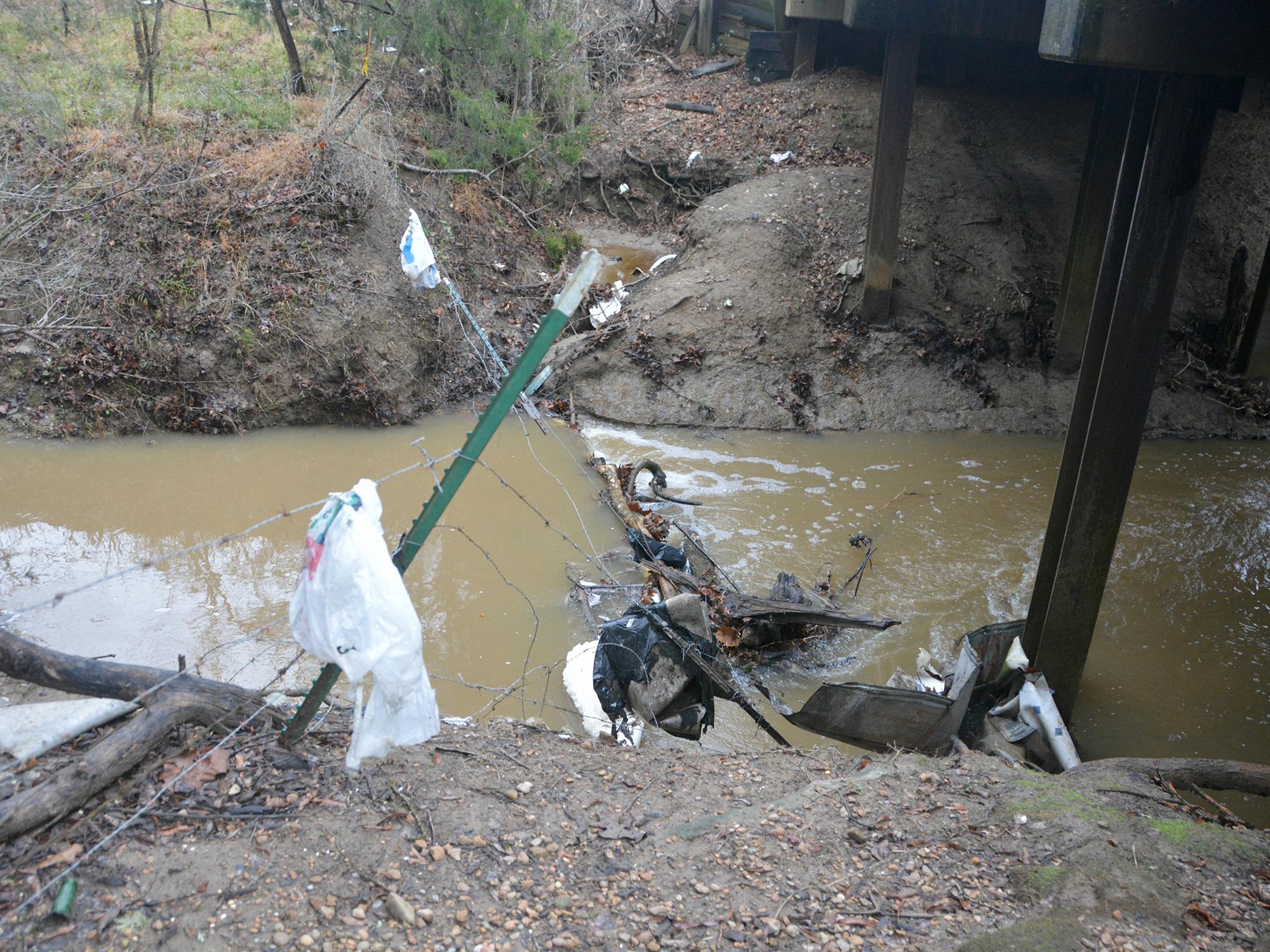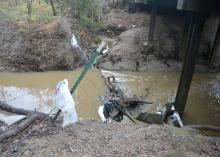Information Possibly Outdated
The information presented on this page was originally released on January 12, 2018. It may not be outdated, but please search our site for more current information. If you plan to quote or reference this information in a publication, please check with the Extension specialist or author before proceeding.
Litter can harm wildlife, nature
STARKVILLE, Miss. -- Most people who enjoy nature and being outdoors are careful to avoid littering -- not only because it is unsightly, but also because it can harm natural resources.
Bottles, for example, can become death traps for small critters seeking food and water. Bottles and other trash can clog drainage ditches and waterways, creating additional challenges, especially if they contained toxins or other pollutants.
Water pollution remains a primary concern for humans and for wildlife. Toxins in water may cause a variety of health problems, some leading to fish kills and other deaths.

To protect water quality, hunters should avoid disposing of deer carcasses in ditches and streams. Bacteria from these decaying carcasses contaminate water and pose health risks for wildlife, livestock and humans.
Mississippi law prohibits the dumping of dead fish and wildlife, their parts or waste on state roads and rights-of-way or on private property without the landowner’s consent. An offender can be charged with a misdemeanor and fined up to $250.
The best way to dispose of dead animals is to put the remains in a pit and cover them with lime, dirt or other items. Alternatively, placing the remains in a remote, dry location will provide buzzards and coyotes with a meal or two.
Trash-related injuries are among the saddest traumas we can witness while enjoying the outdoors. Whether it is an animal with a container stuck on its head or one that has swallowed a plastic bag and is suffering from an intestinal blockage, trash can cause terrifying or possibly deadly consequences. Even unintentional littering -- trash blown out of a truck bed or released balloons that land in the woods -- still poses a threat to wildlife.
Balloon releases are common at parties or memorials, but what goes up, must come down, and balloons are not likely to land in a trashcan or landfill. Birds, turtles and other animals often mistake them for food, easily resulting in loss of life or vitality.
Even a small item, such as a cigarette butt, can cause harm. Butts contain nicotine and can be toxic if consumed. Just because it will not hurt most people or wildlife is no consolation for the one small animal that suffers and dies because of a careless act.
As much as possible, choose items that are easily biodegradable. Styrofoam, for example, pretty much never goes away. Paper or cardboard products will degrade much faster than glass or plastics
Cleaning up the environment and protecting people and wildlife is everyone’s responsibility. Make 2018 the cleanest year ever for the state.

Editor’s Note: Extension Outdoors is a column authored by several different experts in the Mississippi State University Extension Service.








